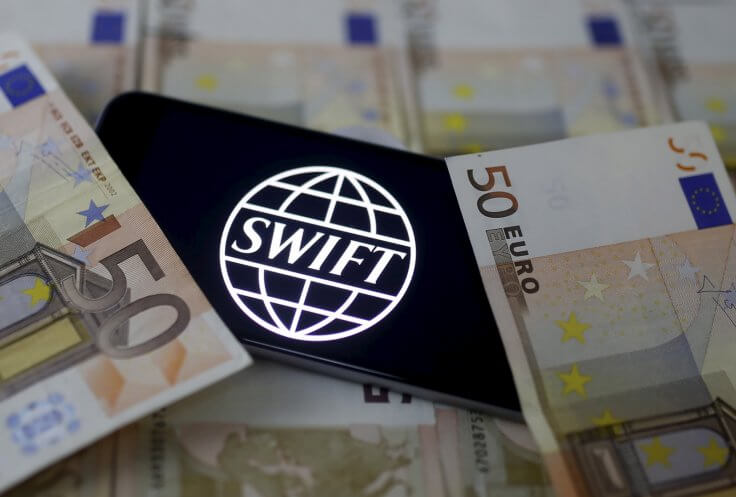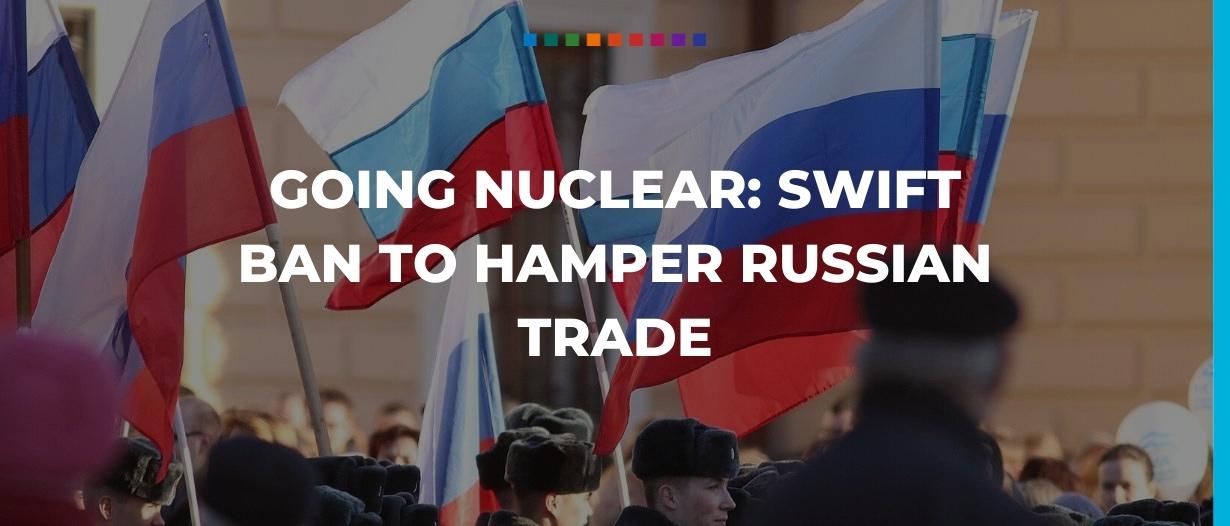The US and its Western allies have ramped up harsh economic sanctions against Russia, as it continues to attack Ukraine.
The Society for Worldwide Interbank Financial Telecommunication (SWIFT), a Belgium-based bank-to-bank messaging system, has cut off some Russian banks from its network.
The cooperative connects around 11,000 financial institutions from over 200 countries, handling an average of 42 million messages daily, and accounting for over half of high-value cross-border payments.
According to the FT, 1.5% of SWIFT transactions come from Russia, the 11th largest economy in the world.
Seen as the ‘nuclear’ option for sanctions, a move was agreed by the European Commission (EC), United Kingdom, Canada, France, Germany, Italy and the United States on Friday to ban Russia from SWIFT.
This deterrent is an economic blow for Russia’s companies and banks, making it difficult for banks to transact with one another both domestically and internationally.

SWIFT does not normally take sides in disputes. It has not done so since 2012, when Iran was banned from the network due to its nuclear programme, subsequently losing almost half of its oil export revenues and 30% of international trade.
The White House said in a statement that “this will ensure that these banks are disconnected from the international financial system and harm their ability to operate globally”.
Exclusion from the SWIFT network means that Russian companies will find it more difficult to process cross-border payments, clearing, and confirm international trade finance transactions via messaging types on the SWIFT network (for example, confirming letters of credit).
The alternatives for SWIFT are rather manual and labour-intensive processes, such as Telex releases, emails, fax, and phone calls.
These unprecedented measures have been levied to weaken Russia’s banking system and government budget, 40% of which comes from energy sales.
European Commission President Ursula von der Leyen said in a statement: “Cutting banks off will stop them from conducting most of their financial transactions worldwide and effectively block Russian exports and imports.”
Russia relies on the SWIFT network as a key exporter of oil and gas exports. According to World Bank data, Russia’s key export trading partners are China, Netherlands, Germany, Belarus, and Turkey.
In terms of trade flows, traders and producers of Russian crude oil normally ship free on board (FOB).
This requires the sellers to place the Urals on board the vessel nominated by the buyer.
From that point on, risk of loss or damage to the goods transfers to the buyer. A crude tender is supplied under a dollar-denominated letter of credit.
It is likely, therefore, that international Urals buyers will be willing to purchase, given the risks.
These actions could be impactful and have unintended consequences. It’s still unconfirmed how many Russian banks have been excluded from SWIFT, but given that SWIFT uses the US dollar as its reserve currency, the global implications could be felt worldwide.
At the time of writing, the Russian rouble has slumped by as much as 40% against the dollar. The tensions have also pushed the price of a barrel of Brent crude oil above $100.
In the past week, a raft of other economic sanctions have also been placed on Russia, downgrading its S&P rating to junk: imposing restrictions on $630 billion of Russia’s central bank reserves, cutting Western financing to Russia’s development bank, VEB, as well as reports of Western commercial banks cutting letters of credit and bank guarantees to Russian commodity traders.
 Australia
Australia Hong Kong
Hong Kong Japan
Japan Singapore
Singapore United Arab Emirates
United Arab Emirates United States
United States France
France Germany
Germany Ireland
Ireland Netherlands
Netherlands United Kingdom
United Kingdom










Comments are closed.